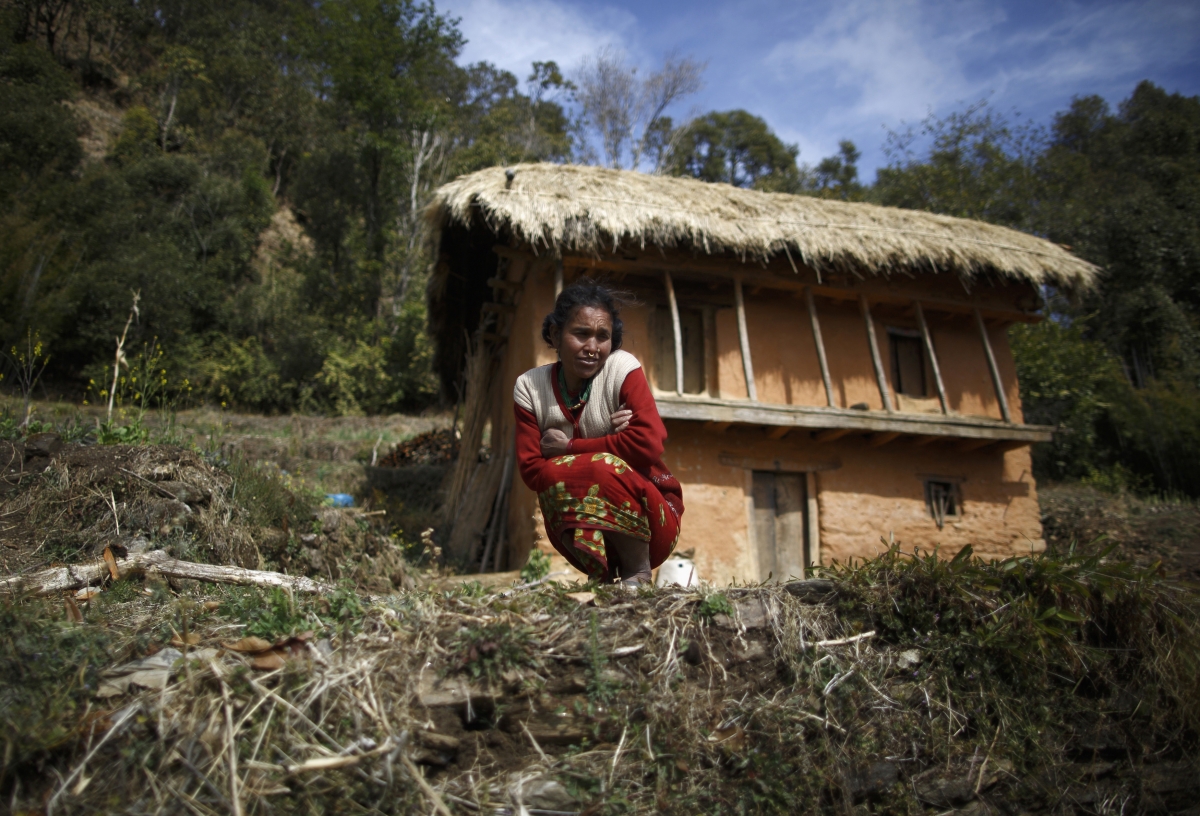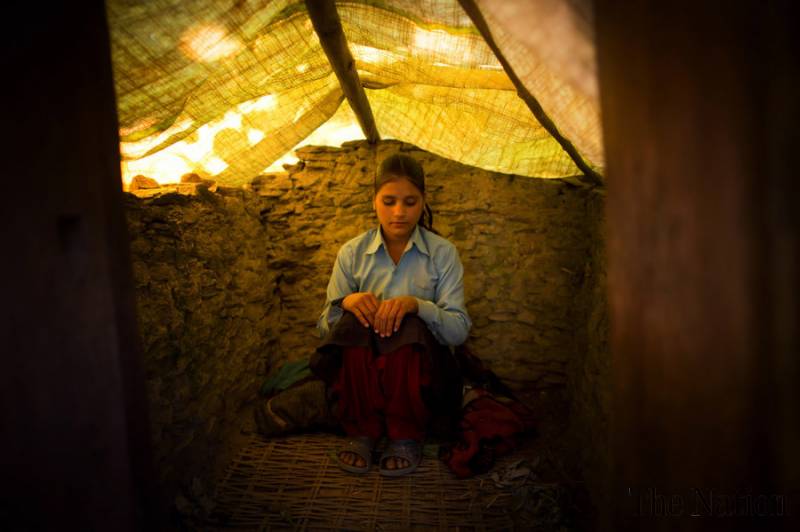Despite being illegal, menstrual huts in Nepal remain an unsanitary and inhumane problem that claim the safety and life of women and young girls. Banished from their homes for up to five days without adequate food or safely managed sanitation, women are seen as impure and polluting in western Nepal.
On the International Day of the Girl Child (11 October), let us reflect on one of the most important processes all girls experience, the menstrual cycle. While in the UK, having your period can be seen as a sign of womanhood and at times even an inconvenience, menstruation in many parts of South Asia is considered dangerously dirty and powerfully polluting. Throughout western and rural Nepal, when girls get their period, they are shunned from society. Menstruation therefore means being banished to sleep in a period hut for up to five days. While in the menstrual shed, they are barred from touching their loved ones. It is believed that if a girl does so much as lay a finger on a man while she is menstruating, he will fall ill. However, men under the influence of alcohol often fail to observe this ritual and girls are frequently raped during their stay in the menstrual hut. Girls are also denied a nutritious diet and must survive on dry foods and white rice that is fed or thrown to them outside as is done for dogs. Additionally, they are restricted from going to school or even taking a bath.

All of these rules are dictated by a ritual known as Chhaupadi, which is connected to Hindu rituals and the ideology that women lose their purity during menstruation. In the local Rawte dialect ‘chhau’ means menstruation while ‘padi’ means woman. In the Rawte dialect of Achham, this word has come to mean ‘untouchable menstruating woman’. In 2006, the supreme court of Nepal declared Chhaupadi to be illegal but the tradition still lives on. In July, a young girl lost her life to a snake that bit her while she was sleeping in a cowshed because she was menstruating. This event resulted in Nepalese Government criminalising such traditions. Hindus in Nepal make up 81% of the country’s, making this ritual deeply engrained in society and thereby, affecting countless young girls and women. There even exists a national holiday commemorating the Chhaupadi in early September. The Rishi Panchami festival revolves around observing a woman who was reborn as a prostitute because she did not follow menstrual restrictions, proving how far the ritual is from being eradicated. During the festival, women wash themselves 365 times and cleanse their hair with smeared fresh buffalo dung, before washing it with cow milk and urine.

In addition to the government legitimising the idea that menstruation is dirty by making the Rishi Panchami festival a public holiday for women, in Narci village, local Nepalese women claim that the ritual is necessary. Many women and girls do not object the tradition and often bleed freely or use a loincloth made from old saris instead of sanitary pads. When menstruating girls wash or dry their cloths, it must be done in absolute secrecy or not done at all. This discretion is unsafe as menstrual cloths can be a health hazard if not properly cleaned and dried in the sun.
The empowerment of women should begin with education; people need to understand menstruation is a normal biological process. Nevertheless, who are we to claim a 200-year-old tradition to be wrong? However, aside from being precarious, cultural relativism is costly. For example, India loses 6.4 per cent of its GDP to health and other costs caused by lack of sanitation. Globally, poor sanitation leads to a loss of $260 billion per year. The discussion on menstruation and menstrual hygiene management needs to be opened up to both men and women in order to put an end to phenomena like the Chhaupadi. Taboos surrounding menstruation should not be cultural issues but issues of human rights. Education can help develop and achieve a long term behavioural change in order to truly overcome this taboo. Together we can reach the SDGs by 2030, ensuring that every girl has a right to a childhood and access to safely managed water, sanitation and hygiene.